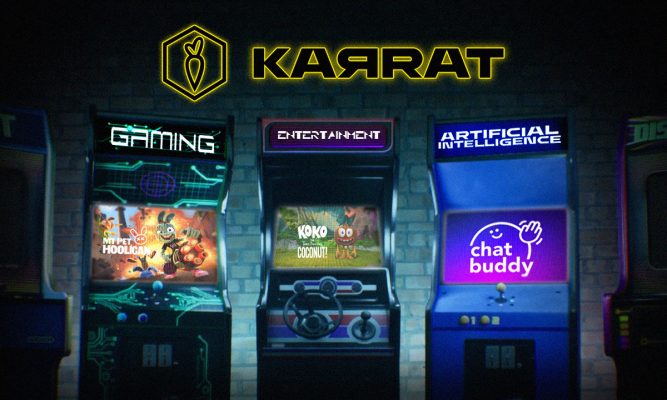Why would people invest in blockchain companies?
As cryptocurrencies become more popular, blockchain, the technology upon which Bitcoin was built, is likely to grow as well. This is why blockchain stocks may be potentially viable investment options in 2023 and even beyond.
It is worth noting that some investors find it more profitable to invest directly in the technology on which cryptos are based instead of buying certain cryptocurrencies.
This article highlights the top blockchain and crypto stocks you should consider buying in 2023. As a note, this article does not represent investment advice – it’s just an article about the best blockchain companies based on our research.
These are the stocks with the highest potential of becoming profitable based on the relevance of their business models. Having said that, let’s dive in and look at the top blockchain and crypto stocks of 2024.
Top Blockchain Technology Companies in 2024
Below we’ve picked a few blockchain technology companies that are publicly trading. By investing in the stocks of these companies, you could gain exposure to the blockchain technology that the crypto world is built on.
A big benefit is that you’re not trading shitcoins – you’d be putting your money in an entity with a track record that posts its financial results each quarter.
Now let’s see if we can find some new stocks that might be worth buying.
1. NVIDIA
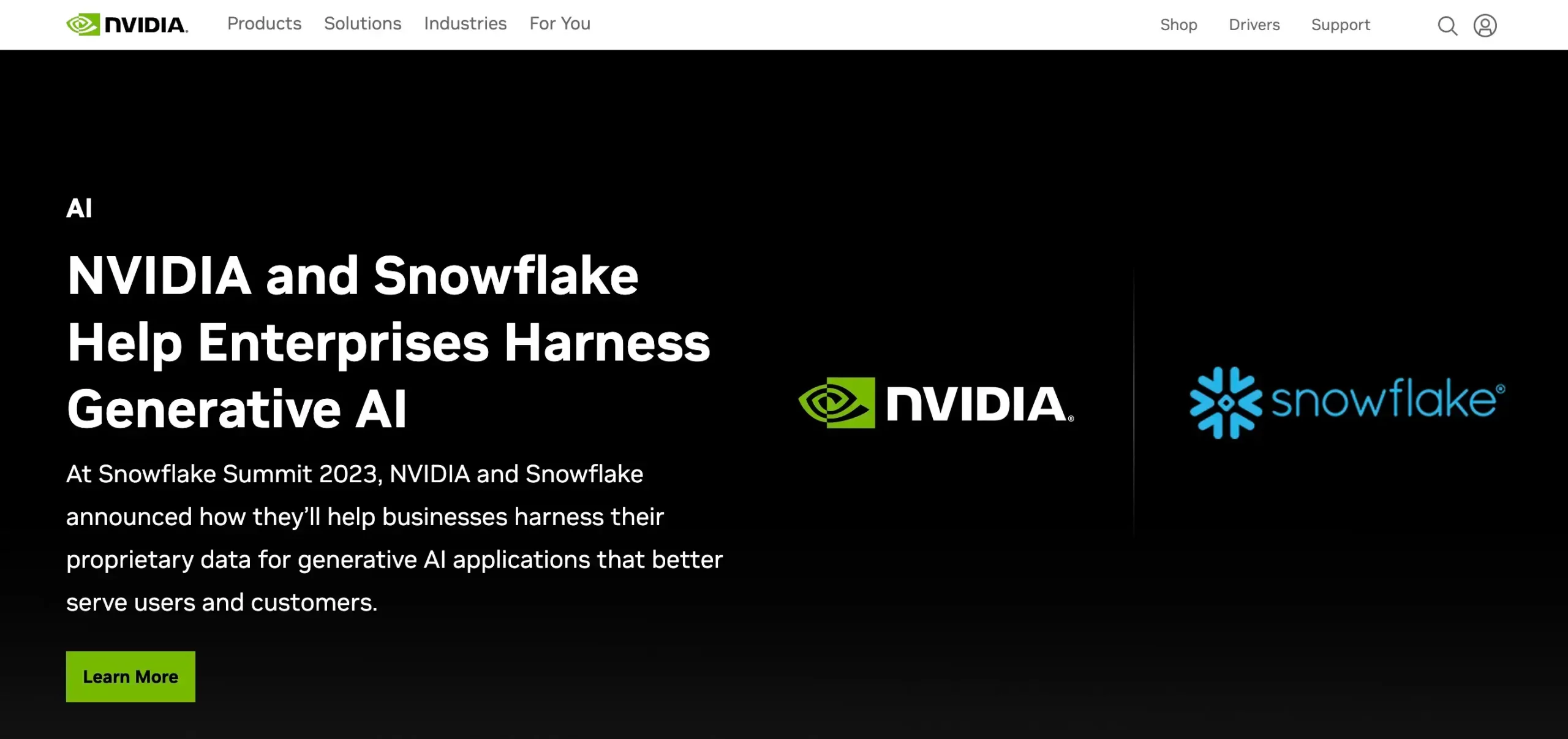
If you are curious about cryptocurrency mining, you must have heard of NVIDIA. The company is a leader in the manufacture of Graphics Processing Units (GPUs). Although GPUs are used for many purposes, including gaming, AI, and more, some of NVIDIA’s GPUs are used for mining cryptocurrencies like Bitcoin.
Even though Ethereum moved to proof of stake and the GPU demand decreased, Nvidia managed to find a new market to sell its GPUs – the AI market. So, the company recently had a 180% increase over the past 6 months due to the AI news.
Moreover, Dan Hutcheson said: “What Nvidia is to AI is almost like what Intel was to PCs.” – Source
Undeniably, Nvidia is one of the hottest stocks of 2023. Its Market cap soared above 1 Trillion – making it one of the top blockchain stocks to invest in.
Also, Nvidia’s technology can be used to create supercomputers, which can help create an ultimate blockchain used worldwide.
Altough, be careful when investing in Nvidia, as most investors see it as an extremely volatile pick.
2. Mastercard

The name Mastercard is a powerhouse when it comes to credit cards and payments, but there is more to it. Even if it is an old legacy payments company, Mastercard is stepping up its game to flow with the fast-evolving technological world based on blockchain.
Moreover, Mastercard has enabled crypto companies to issue crypto payment cards on its platform, making it relevant in the crypto revolution. Recently, Mastercard filed a trademark for crypto and blockchain-based tools.
Mastercard also holds multiple blockchain patents, making its stock a good option for your portfolio. With billions of customers worldwide, Mastercard is one of the companies with a bright future ahead in the Finance sector – and can even become a top player in the cryptocurrency sector.
Mastercard stock had a small growth in the first quarter of 2023, but it’s currently up 10% in the last 6 months and 19% over the last year. With a 356 Billion market cap, many investors would probably see it as tempting, considering the market cap of its main competitor – Visa.
3. Amazon
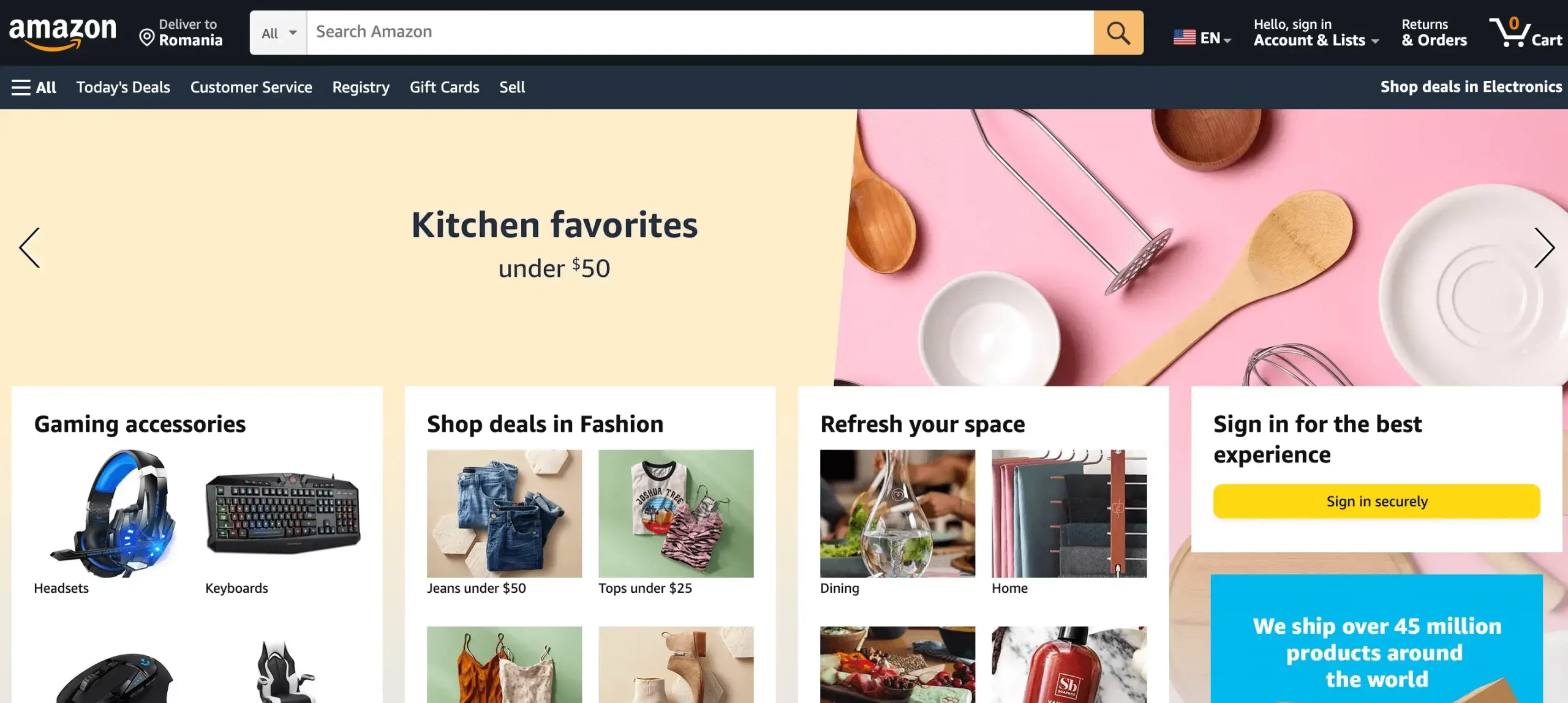
Amazon is the empire of online sales. The company has grown to become a multibillion-dollar giant through sales. Amazon’s revenue was 127.3 Billion in March 2023 – and its balance sheet is growing stronger yearly.
Amazon is also a giant in the blockchain space. It provides a leading blockchain-based cloud infrastructure known as Amazon Web Service. This infrastructure makes it possible for other people to create and manage their own blockchain networks.
Also, the Amazon-managed blockchain was launched on October 22, 2022. The service eases the process of joining a public network or creating & managing scalable private networks.
Though the blockchain aspect is still only a small percentage of the company’s entire business, imagine what will happen when Amazon finally integrates blockchain in its e-commerce platform with billions of daily users.
After a decrease in stock value since 2021, Amazon stock is up 49% over the last 6 months and 14.58% over the last year. Their past performance since COVID was not as expected, but AMZN may be one of the best blockchain stocks for 2023 and afterward.
4. Microsoft
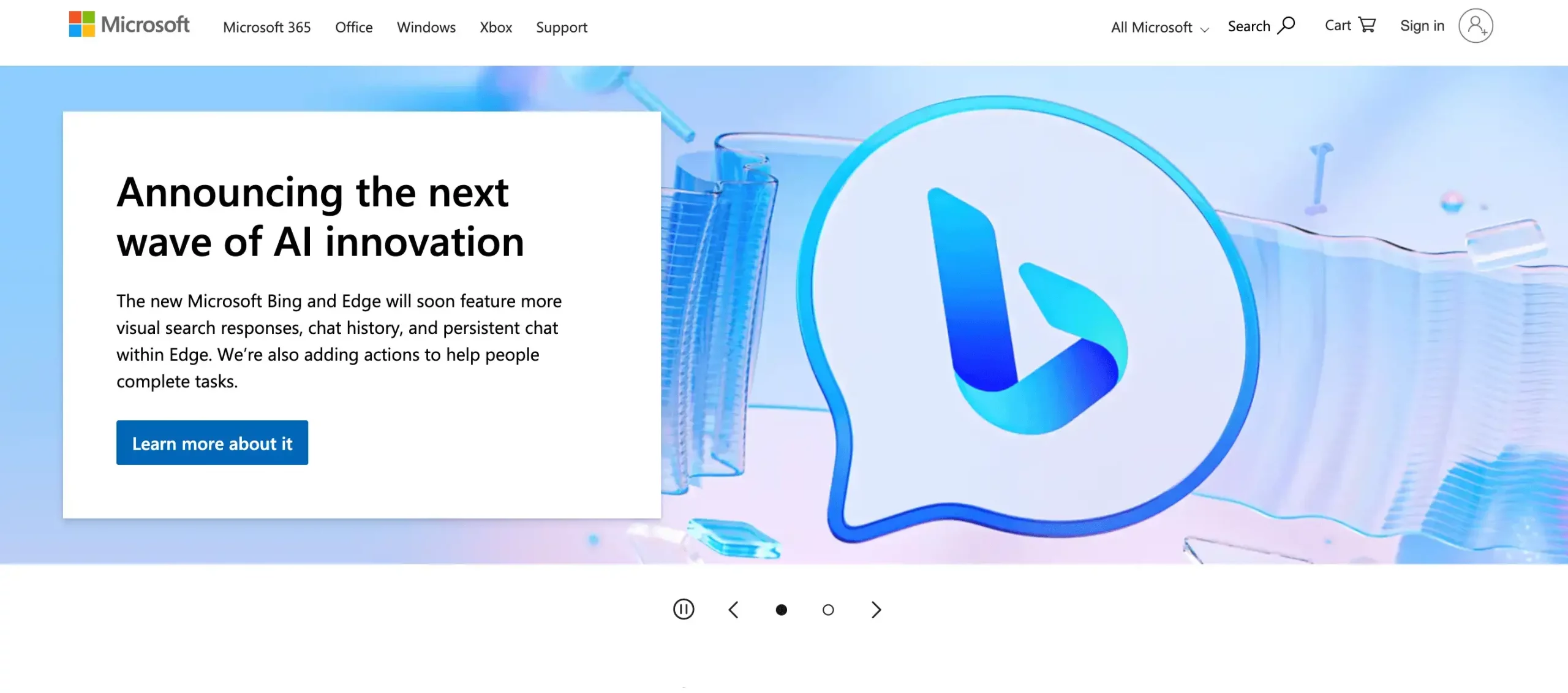
This is the computer software giant known for Windows-powered computers. However, beyond computers, Microsoft has also dabbled into blockchain technology, making it all the more relevant today.
Microsoft is one of the few publicly traded companies actively using blockchain technology. In May 2023, it was reported that Microsoft, Goldman Sachs, and Deloitte teamed up to create Canton Network – a blockchain network for institutional clients.
MSFT is one of the tech stocks that increased in value by 41% over the last 6 months and 26% over the last year. MSFT stock is ranked #2 in the world, according to MarketCapOf. Yet, investing in MSFT might be risky with this growth in such a short period of time.
However, a DCA on MSFT has proven to be a good way to invest over the past years. The technology and innovations created by Microsoft made it a colossus among technology companies. There are an estimated 1.4 billion users using Microsoft services.
5. Block, INC ( Formerly Square)

Block Inc is a financial technology company known for credit card payment processing. However, it has blockchain technology as a significant part of its business. Block Inc is the owner of Cash App, a peer-2-peer payment app that has BTC integration, allowing users to send, receive, and store Bitcoin. Cash App has more than 47 Million users, which can buy and transfer cryptocurrency at any time.
Block Inc was founded by Jack Dorsey – ex-Twitter CEO – and one of the biggest blockchain advocates in the space. Jack Dorsey created Spiral, which focuses on Bitcoin development. The Spiral’s parent company is Block Inc.
Block Inc (SQ) has a big interest in digital assets, and it’s one of the top blockchain stocks that can grow in the future. The SQ stock, however, is down 10% over the last year – but 5% up over the last 6 months. As the company owns Cash App – we believe that recovery to its former glory is doable over a few years.
6. CME Group

CME is the only mainstream commodities trading platform that also trades in BTC futures. With the rising interest in BTC, the company is bound to see increased revenue, and its shareholders could benefit immensely.
CME Group had a few futures options, such as Bitcoin futures, micro Bitcoin futures, Ether futures, and Ether micro futures. Being one of the companies that are into the cryptocurrency sector – they might add multiple other cryptocurrencies in the future – bringing institutional clients a way to trade cryptocurrency hassle-free.
CME Stock had an 8% increase over the last 6 months, but it’s still 13% lower over the past year. The market cap of CME Group is a bit over 64 Billion. It’s also worth noticing that the CME Group has a dividend of 2.46% per year.
If you are looking for potentially profitable blockchain stocks, CME Group is one you should consider. Being in cryptocurrency trading for institutions, they might become the leaders of a valuable market in the future.
7. Marathon digital holdings
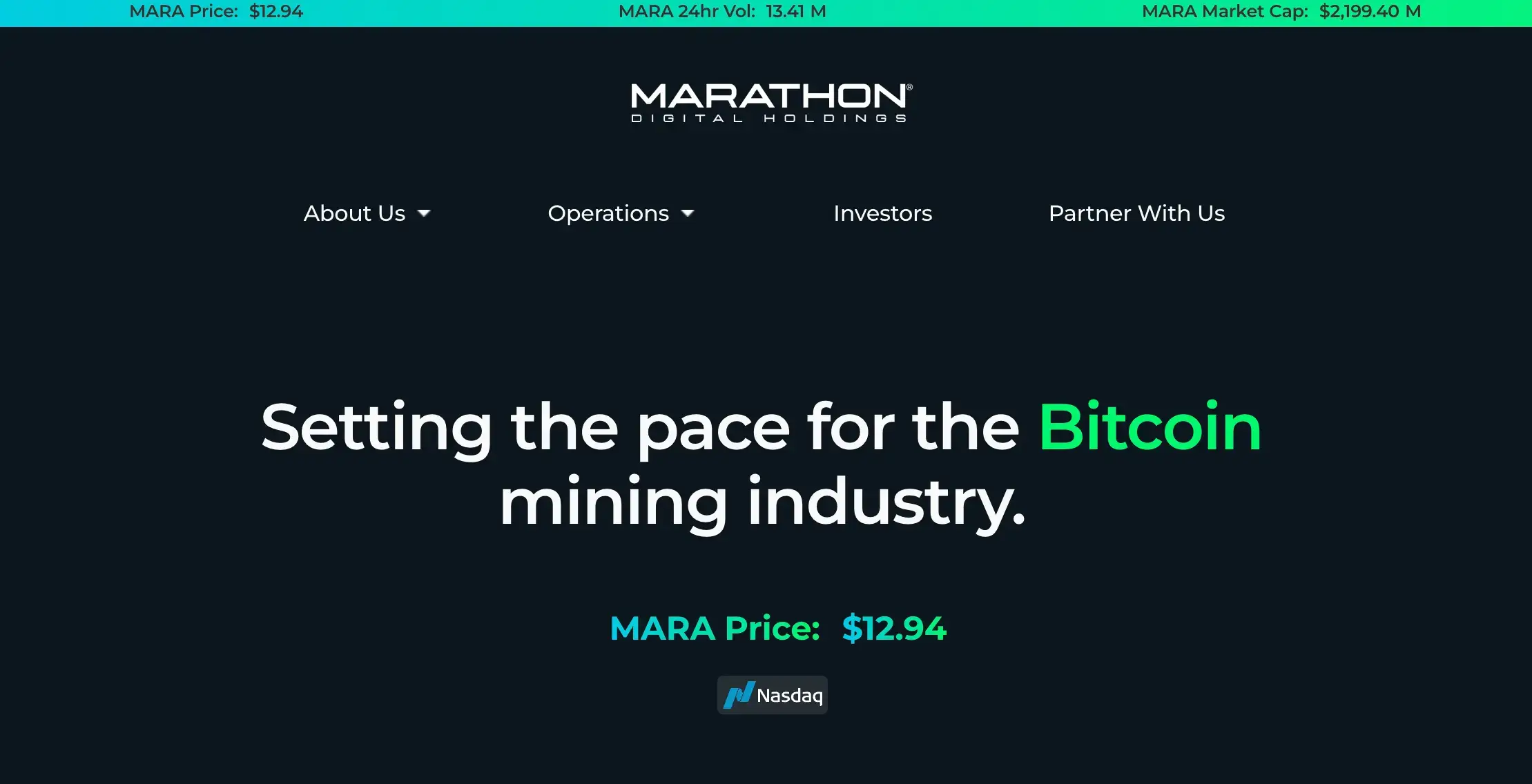
Marathon digital holdings is a company focused on cryptocurrency mining. Marathon has been among the top cryptocurrency stocks since its inception in 2012. Its main competitor is Riot platforms.
Marathon currently has 12,259 BTC in its reserve from the cryptocurrency miners. At the current Bitcoin price, that’s roughly 383 Million BTC in reserves.
The company’s business is a risky one – as they don’t control the price of Bitcoin, the price of the mining equipment, and so on. When Bitcoin hit $17,000 – Marathon had a net loss of 75 million for the past quarter. However, the amount of Bitcoin produced by Marathon digital holdings has increased by 74% since last year.
With a 2 Billion dollar evaluation, the future results of Marathon digital holdings depend a lot on the Bitcoin price. Marathon is not one of the blockchain companies that we are used to it. But they own a large amount of Bitcoin’s hash rate – which has blockchain as its underlying technology. While its main competitor – Riot platforms – struggles with financial instability, it seems that Marathon digital holdings is on its way to a 2 billion market cap.
8. BroadRidge

BroadRidge is a Canadian blockchain firm that runs several blockchain-related businesses. It is regularly patronized by mainstream banks, such as JP Morgan, which use distributed ledger technology. Its underlying blockchain technology – the distributed ledger technology – is used by institutional clients for various services.
The patronage of such banking giants makes BroadRidge’s crypto stocks a viable investment option to consider in your investment adventure.
BR stock is up 17% over the last 6 months and 8% over the last year. BroadRidge (NYSE:BR) also offers a 1.82% dividend.
9. Coinbase
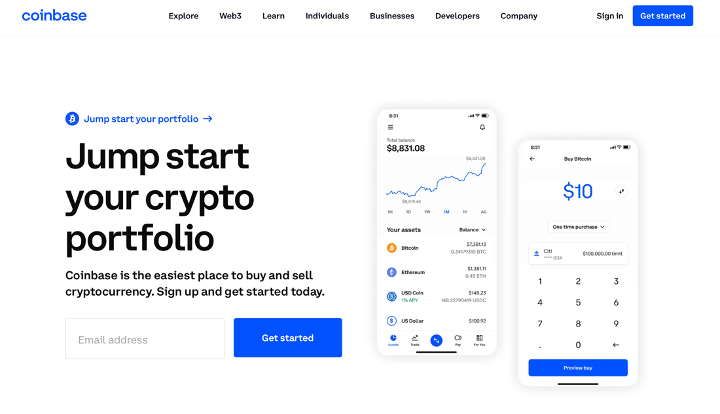
Coinbase Global, Inc is the parent company behind Coinbase.com. Coinbase was started in 2012 by Brian Armstrong and Fred Ehrsam. They allow investors to purchase digital assets on their own cryptocurrency market. Coinbase became one of the top crypto exchanges and held the first IPO of a cryptocurrency trading platform.
Users create an account on Coinbase to be able to trade cryptocurrency, but they also have other services such as decentralized finance using their Coinbase Wallet. The most recent notable news regarding Coinbase was the launch of their Layer 2 solution called Base. The news was made public on February 23, 2023 – and the COIN stock briefly recovered after the news.
The Base blockchain can bring a lot of new customers to Coinbase, which will make transactions generating revenue for Coinbase Global.
Note: Base will offer blockchain applications, in partnership with several blockchain companies. Each time transactions of digital currencies are made on the Base blockchain – Coinbase global will win a part of the fee generated. An account is not needed to make transactions on Base blockchain, only a DeFi crypto wallet.
COIN stock is up 96% over the last 6 months, and only 14% over the last year. Since IPO, COIN stock is down 81%.
10. Paypal
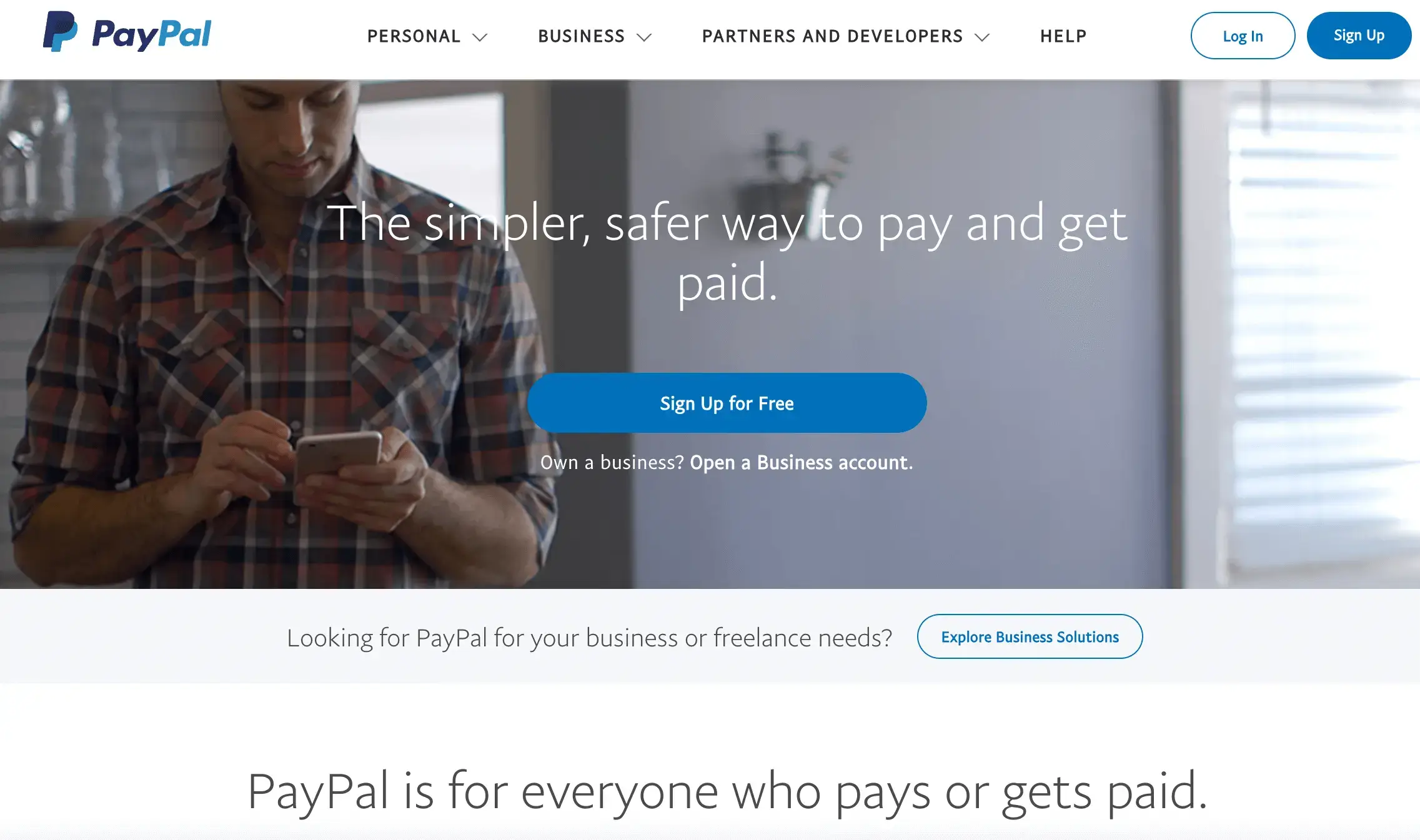
Paypal Holdings is not exactly a blockchain technology stock, but it might have a future in the crypto industry. They might be among the few publicly traded companies that are holding cryptocurrency on behalf of their clients.
Investors might purchase Bitcoin, Ethereum, Litecoin, or Bitcoin Cash using Paypal. The market that Paypal Holdings created for cryptocurrency was not designed to be a trading one – so the fees might be a bit higher than with your average crypto exchanges.
In 2023, Paypal Holdings reported that their crypto holdings grew 56% in the first quarter. While the past performance was disappointing for Paypal
Holdings over the last year ( -2% over the last 6 months, -12% over the last 6 months, and even -20% over the last 5 years) the future results might turn to a more positive note as more people might gain exposure to cryptocurrency trough Paypal.
Are any Decentralized Finance companies listed on the stock market?
No. Right now, there aren’t any DeFi companies that are publicly traded. One of the reasons for this is that a huge majority of DeFi projects have their own cryptocurrency – acting like the company’s stocks.
While their token might not be listed as securities, most of the projects don’t like to bother creating their stock as that’s the point of DeFi – to decentralize finance and own something valuable on your own – not my working with a bank or an institution.
Conclusion
These are some of the best blockchain and crypto stocks you should consider buying in 2023. While there are certainly other ways of investing in blockchain businesses, such as ICOs, STOs, and others, many of these methods are still unregulated in most markets. Prefer your money to be invested right away? If you need a little boost to start, try to use online wealth management platforms, such as Einvestment, it can round up high-interest rate accounts for more comfortable and safe investments. Professional managers can vary your financial instruments in one big high-return investment portfolio.
